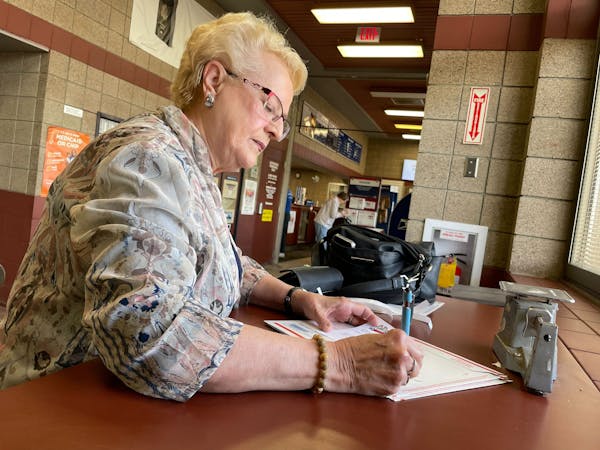In today's (Wednesday) Home and Garden section of the StarTribune I have a column about American White Pelicans that breed in Minnesota. The pelicans winter on the Gulf of Mexico. Since the BP oil spill on the Gulf the birds have returned to nesting grounds carrying oil and oil-dispersant pollutants. Scientists in Missippippi, however, might have found a dispersant that is not harmful to birds. Read on.
It's counter-intuitive to think that a constituent of peanut butter could keep oil off birds. After all, what holds the pickles, chips, or banana slices in the sandwich if not the peanut butter?
Scientists at the University of Southern Mississippi (USM) have, however, used edible ingredients found in peanut butter, ice cream, and chocolate to fashion a dispersant that allows oil to run off a duck's back, just like water. Toxicity testing is yet to be done, but food-safe ingredients bode well for success.
A paper describing the chemical was delivered in August at the National Meeting & Exposition of the American Chemical Society. Presenting the paper was Dr. Lisa Kemp of USM, a member of the team there that developed the chemical.
"The use of traditional dispersants is really a lesser-of-evils choice that has to be made," Dr. Kemp said in an email. You either let the oil be or disperse it to lessen its impacts.
"Many of the traditional dispersants contain petroleum distillates as solvents and many are good wetting agents. They allow the oil to spread and stick to surfaces better," Dr. Kemp wrote.
"Our dispersant is very different than these traditional dispersants," she wrote. "Ours is a solid product made from food-safe ingredients. It doesn't contain any solvents or petroleum distillates."
Once dispersed with the new chemical, oil still floats on the surface of the water in small droplets. But – and this is the key -- the droplets have become non-sticky.
"We have done laboratory testing where real, untreated duck feathers were dragged through the dispersed oil and rinsed in clean water," she wrote. "Any visible crude oil was removed."
This means that birds coming in contact with spilled oil so treated self-clean by simply leaving the water. The treated oil runs off.
No longer would teams of volunteers have to handle birds to remove oil, Dr. Kemp wrote. In addition, the new dispersant does not include harsh surfactants, she said, so it doesn't remove all of the natural oils birds use to condition feathers.
"Our product is at the prototype stage," she cautioned. "We haven't used it on an oil spill, and it still needs to go through toxicity testing." That will determine if the chemical is harmful to birds if ingested.
"However, we're using all food-safe ingredients that are eaten in a variety of products by people every day," she wrote.
(Really, how can an ingredient in chocolate possibly be harmful?)
In foods the dispersant ingredients are used to stabilize oils so they don't separate quickly, as a thickening agent, or to improve the feel of food in your mouth, she explained.
team is collaborating with the University of Southern Mississippi Gulf Coast Research Lab on initial toxicity testing.
The inventor of the technology is Dr. Robert Lochhead, and the other members of the team are Drs. Sarah Morgan, Daniel Savin, and Les Goff.
For more information, the Web site ScienceDaily has a news release on the dispersant. Go to
http://www.sciencedaily.com/releases/2012/08/120820114039.htm
Sign up for Star Tribune newsletters

Drone footage shows Ukrainian village battered to ruins as residents flee Russian advance
In heated western Minn. GOP congressional primary, outsiders challenging incumbent

